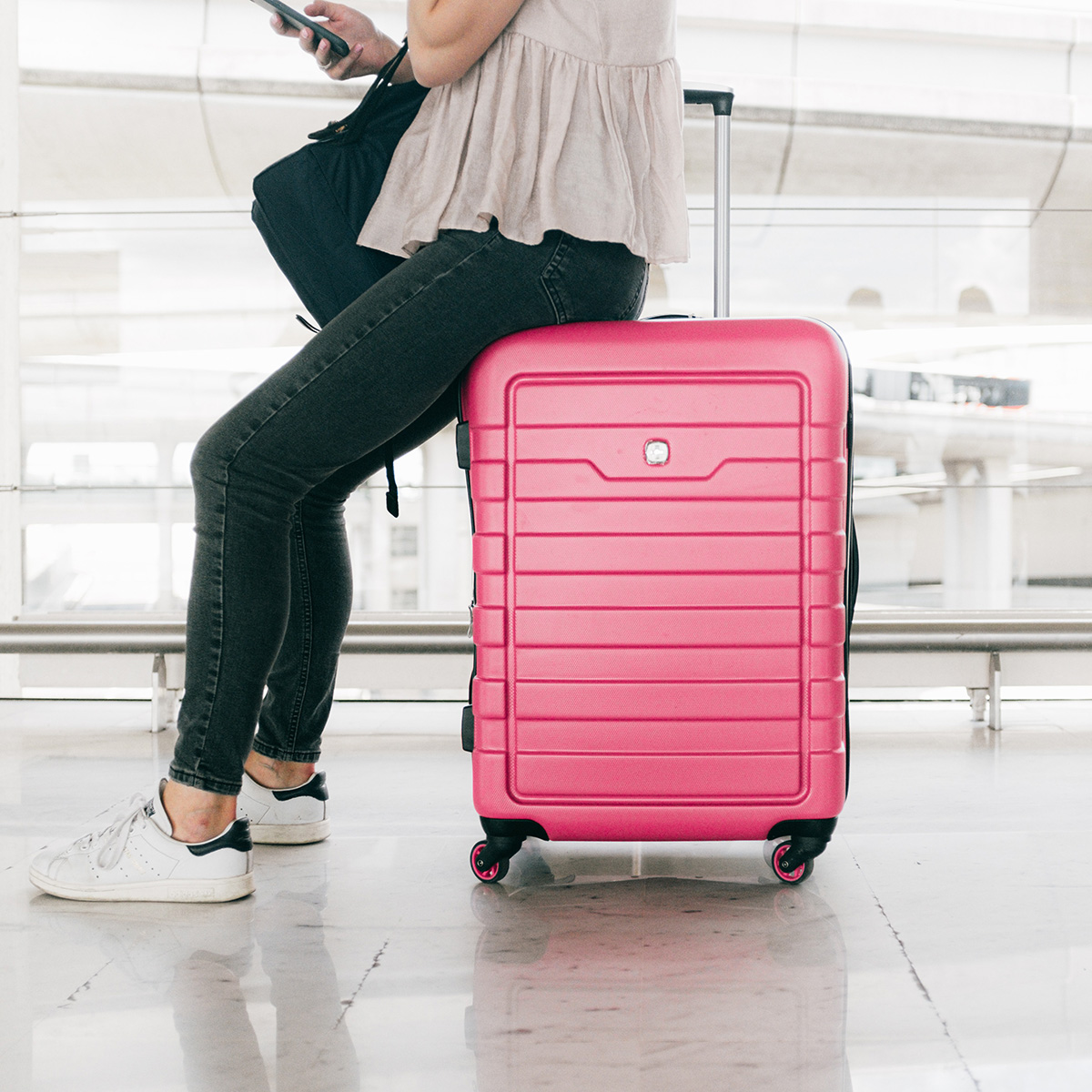Everything You Need to Know about Travelling to Europe after Brexit
Tuesday, 9 Mar 2021

Coronavirus, and its control on our movements, has dominated headlines and talk within the travel community for what seems like an eternity. Now, vaccines have us all excited for city breaks and beach escapes once more and the release of pent-up demand is sure to be seen this summer in destinations such as Greece and Spain but wait – remember Brexit?
Last year, the UK officially left the EU, but a transition period was put in place to allow both parties time to iron out a deal. Given the monumental happenings of 2020, we’d say this period presented a welcome pause to proceedings.
The Brexit transition period ended on 1 January 2021 and with international travel restrictions set to be lifted for Britons from as early as May 17, we can now start thinking about the realities of a trip to Europe in light of the UK’s new position outside of the bloc.
Uncertainty may remain surrounding the UK’s future relationship with Europe but for now, we know the rules about travel have changed and will impact how we will holiday in some of our favourite destinations.
Here is everything you need to know about preparing for a trip to Europe - once you’re allowed to leave good ole Blighty of course.
Passports

It’s a good idea to check your passport again. Previously, all UK citizens with a valid passport were able to travel freely throughout the EU. As of January, however, you may need to renew your passport much earlier than you anticipated as new rules state you must have at least six months validity remaining from the day of your departure.
Entry to EU countries, or Iceland, Liechtenstein, Norway or Switzerland may be denied if your passport expires within these six months.
Check with the official UK government website for country specific requirements before your travel and if needed, renew your passport at least a couple of months before your planned departure date as it may take several weeks to process applications.
Airports

British travellers will no longer be able to use the EU citizens lane at border control and must instead use the Non-EU citizens’ queue.
Be prepared for longer wait times and more questions from officials who may require you to display your return or onward ticket and provide proof of funds to support the duration of your stay.
No meat, milk, or products containing such are permitted into Europe from the UK with the Independent reporting how border officials in the Netherlands were confiscating sandwiches from motorists arriving in the country from England.
This ban extends to items such as cakes that contain fresh cream and confectionary and items must not be on a passenger’s person or their luggage.
A special certificate will be needed to bring back certain plants, fresh vegetables, flowers and grains.
You will now be able to enjoy duty-free shopping of goods including alcohol and tobacco in ports, airports and international train stations on your way back from European destinations.
Health Insurance

Before departing, we recommend finding your European Health Insurance Card (EHIC). The card will remain valid until it expires but if yours already has or will before your travel date, you will need to apply for the new UK Global Health Insurance Card (GHIC).
Free of charge, the card will entitle you to necessary state healthcare for free or at a reduced cost in Europe or other rest-of-the-world countries where the UK has reciprocal healthcare agreements such as Australia and New Zealand.
The GHIC does no cover access to health services in non-EU countries such as Norway, Switzerland and Iceland so if travelling to any of these destinations it is important to take out adequate travel insurance to cover any possible health issues that arise during your stay.
Driving a Car

For those wishing to hop on the road trip trend and traverse Europe in their own vehicle, there are a few extra pieces of documentation that you will now need before you begin.
Firstly, you need to ensure you have a GB sticker to attach to the back of your car.
You’ll also need a Green Card, or Motor Insurance Card, which is a certificate of insurance proving you have the minimum insurance coverage needed to drive in Europe.
Northern Irish drivers are also required to carry a physical Green Card when travelling across the border into the Republic of Ireland.
The application process for a Green Card can be lengthy so we advise you to take action six weeks in advance of your journey.
Anyone wishing to drive a car, whether their own or a hire, during their visit to Europe must have a valid photocard license that was issued in the UK. Alternatively, those with only a paper licence or one that was issued in Gibraltar, Guernsey, Jersey, or the Isle of Man, will need to apply for an International Driving Permit (IDP).
There are three types of IDP depending on the country being visited, and if you’re planning on driving in more than one country, you may need more than one type of permit.
Trip Duration

Tourists don’t need a visa for short trips to most EU and EEA countries.
Travellers are permitted to holiday in Europe for a maximum of 90 days in any 180-day period but those who wish to visit more frequently or stay longer, such as students studying abroad, will have to apply for a visa or travel permit.
Trips to Bulgaria, Croatia, Cyprus and Romania will not count towards the 90-day total.
Meanwhile, rules of visits to Ireland have not changed and you are still permitted to work there.
Pet Travel

We get it, you’ve been cosying up with your pets on the sofa for the last year and you can’t bear the thought of leaving them for a week or two.
A holiday to Europe with your dog or cat is now more difficult than previously, however.
If you have one, your existing pet passport will no longer be valid (except for those from Northern Ireland). Instead, you’ll need an Animal Health Certificate (AHC).
The AHC requires a blood test and results can take as long as three months to get back, so we advise starting this process well in advance.
Your pet will also need to be microchipped and vaccinated against rabies. Treatment for tapeworm is also required if your pet is travelling to Finland, Malta, Northern Ireland, or Norway.
If you want to make your journey to Europe a little easier, you can avoid carrying excessive amounts of luggage by sending your belongings in advance.
How do you feel about travel to Europe post Brexit? Join the discussion on Facebook or Twitter.
Our Most Popular Articles

UK Summer Staycations: Beach Havens
With bookings surging for the summer months, we thought now would be the perfect time to list our favourite coastal retreats across the country. Giving you enough time to book in advance and ensure you, and all the family, at least get some time in the sun.

The Vaccine Passport Debate
With this article we aim to shed light on what exactly could be implemented and how this could impact us all. Could immunity passports open up travel again?

Top 10 Adventure Holidays for After Lockdown
With this blog, we aim to inform you of the best adventure trips you can experience in destinations across the globe in the hopefully not too distant future. These are all trips of a lifetime and now is the time to start dreaming and planning.